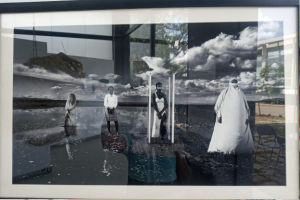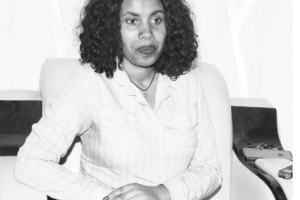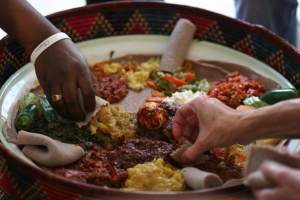
The term agency of a woman has been a dominant term since the colonial period. African women during colonization were facing double patriarchy. That is the socio-cultural patriarchy of the indigenous people and their white masters’ exploitation. During that period since the severity of women subordination was impulsive, writers were raising their pen to echo the situation in their literary and other creative works. In the process of examining those works, the efficacy of women characters in challenging their double patriarchy was approached with the expressive word ‘agency’. This term is boldly used by postcolonial theorists. But it is also touched up in the African feminist principles.
For the purpose of this article, women agency is understood to mean the efficacy of the women in acting or reacting to a certain action or situation or the ability of the woman in initiating a certain action in a given context.
African women who have been under socially approved marginalization have been points of discussion and lots of rules and policies have continued to exalt their positions. Procedures have also been drawn for combating women violence. With that response scholars’ philosophies on ideas for point of argument and seized understanding of issues. African women agency is the most dominating genre in the study of gender these days.
The notion of agency is best addressed in the theory of Nego feminism. In this principle Nneameka underlines women agency and the strategic approach they apply to challenge patriarchy. She says the woman needs to equip herself in knowledge and information to get ready to move with her counterpart. Nneameka believes in education. Equal access to it did contribute more for gender equality and balanced inclusion of females in various positions.
For the sake of this prose, some strong and figurative women leaders’ experiences were visited. The stories raised by almost all of them are found to be represented by the former Malawi president Joyce Banda.
Joyce Banda experiences which glorify the meaning of African women agency and the challenges they faced are focused under with the meaning of women inclusion in political leadership.
This experience of the President was presented in the international conference organized by the Centre and Global Development. The world attended her story to get lessons and contextualized it with the existing reality.
Certain documents and studies, at least in words, said that women inclusion in political leadership is very important and is key for sustainable development. Let’s see what Joyce Banda did while she was in the parliament of Malawi, “I was in a parliament. I was in a civil society fighting and arguing and hearing everywhere. But the moment I get into the parliament… I remember when we championed the Domestic Violence Bill we were only 27 women in parliament. But with the support of Oxfam and UNFPA, we were able to pass that law.” Here the point is though the number of the women members in the parliament was too small for the required vote for passing the new law; these women were very effective and smart on how to achieve it. When she explained how tough it was Joyce said: “I can talk until tomorrow and write a book about what we went through to have that bill passed but finally we did so.”
This experience of Banda and her team is a best instance for the meaning of women agency. When women get a way, they can design way outs and shine around their placements, I believe. Thus, women inclusion in politics is necessary to achieve sustainable development goals.
In the socio-cultural reality of Africa, women should exert double or even triple efforts to compete and win over the male since males have already taken the superior position by custom. That double effort can be understood in various ways. Women can succeed as individuals. But as African feminism argued, African women are not individuals. They need to be smart who look and care beyond themselves.
Though Joyce Banda was attending top schools in the urban areas of Malawi, she was examining the schooling situation of her friends in her community. She asked about them. Her friend was compelled to drop out of school because of financial challenges. “I first came face to face with the injustice of girls’ education. Most of them are not going to school; through no fault of their own.” This concern is raised and becomes the issue of the policy of the government. This is activated by the woman who was there in a position which is my own interpretation.
This former president’s agency or efficacy was also portrayed when she was experiencing her fourth child delivery. As she narrated it on the stage, she has been through a painful situation in the clinic. She was suffering with postpartum hemorrhage which is the biggest cause of death in Malawi. But because of her husband who is a high court judge’s friend who is a gynecologist her life was saved. But she thought about what would happen to other women. She planned something. “I went to the organization and I said ‘corporate responsibility comes with me to install electricity in this clinic in less than a month. I went back to that hospital to switch on the electricity.” The confidence that she showed emanated from her personal ability and confidence; which is agency. She brought change because she was in political power.
The personal experiences of Joyce Banda did reflect how she has been used to be effective and informed well. She was in an abusive marriage for 10 years. It seems that she had a lot to be said in that life because she said. “I begin to talk about my life…the fights…I will not stop…” she is an educated, informed and confident woman. Thus, how could she tolerate such abuses? “I made up my mind that I shall spend my life assisting women who are abused to get out of that situation. Then I get into politics…and that is drama.” She divorced and stepped up into politics; build her own organization which aimed at supporting African women to come to leadership.
She gets into another marriage which is full of joy and cooperation as she mentioned it various times in her different interviews. Thus, when a woman becomes effective or agent herself and takes political leadership, she can change the minds of many females by showing changes on her own. Besides this, she can give a practical solution since she knows the extent and depth of the problem in face. This cumulative effect can accelerate the transformation of the people of Africa and the world too.
When a woman gets into political leadership, she can raise her voice for the dominant voiceless females of the continent and the world. Joyce Banda did this in front of the international community. “In my opinion, we all have to do something in order to support women to get into politics, to succeed in office and to stay there.” The continent is steadily patriarchal. Thus, top positions are reserved for males. When an effective woman attempts that position, there are challenges which are sourced from that patriarchy. Thus, till this belief gets challenged through education and modernization, women need to be helped when tracking into leadership. Women in politics will face many troubles like stereotypes. I will examine this idea in my next article.
Banda mentioned what African women these days need. “Women need gender equality and material wealth. We let down the women of this world. This time we need to start, need to work hard to listen to what we are saying on the continent of Africa, mobilize resources and our sisters.” The lady is concerned for the continent and the world’s females. She raises these points for practical reaction. But I personally am fascinated by the verbalization of African women issues on that stage with such a magnificent and deep understanding.
Joyce Banda finally asked the women of the universe. “I want to ask the women of the world to say that enough is enough and that there is not going to be anything about us without us. And I want them to insist that where the decisions are being made, we must be sitting there … .we must start now and reclaim our position.” This saying is not a simple advice but before these words there were practical efforts of the woman. Thus, it is a solid truth which is tested in fire.
She also had a say on African women leaders. “African women leaders have been leaders before. So, we are not saying new things. We are just saying we want to go back to those days when we are respected as women leaders; and this is our time. If they don’t do this, if we, African women, don’t do this then I am afraid we are going to remain on the menu forever.”
These days, having a good number of women leaders in Ethiopia is comparatively overwhelming. But effective women are massively away from inclusion, maybe because of the patriarchal perception and weak and inactive, I believe institutions and organization inclusive advocacy. Thus, women, particularly leaders, need to start looking for their sister women. The position with their agency could bring a change. They can use their seat to create organizations that can mobilize females based on their basic problems.
BY MEKDES TAYE (PhD)
THE ETHIOPIAN HERALD THURSDAY 11 JULY 2024





